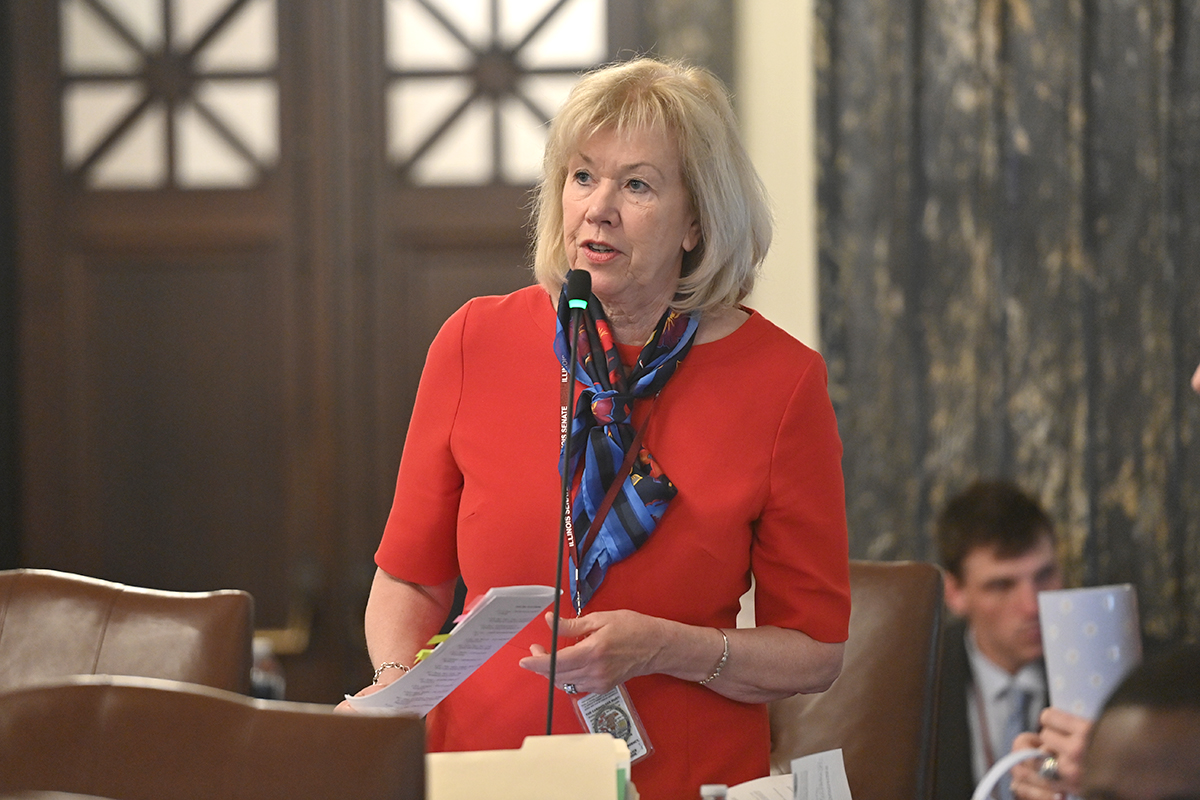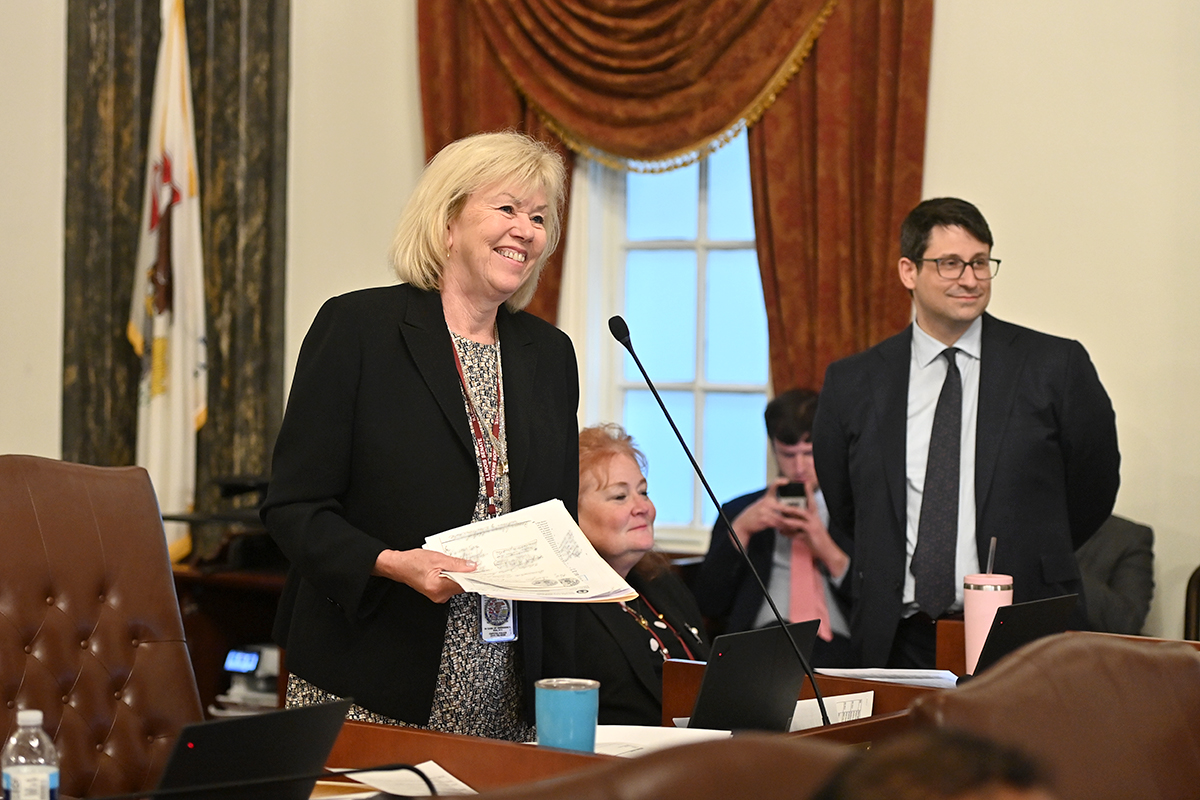- Details
- Category: Latest News
 SPRINGFIELD — State Senator Julie Morrison will continue her position in Senate leadership as majority caucus whip, as well as serve as chair of the Senate Insurance Committee for the 104th General Assembly.
SPRINGFIELD — State Senator Julie Morrison will continue her position in Senate leadership as majority caucus whip, as well as serve as chair of the Senate Insurance Committee for the 104th General Assembly.
“Illinois has made significant strides in recent years in building stronger, safer communities,” said Morrison (D-Lake Forest). “It is a privilege to serve as majority caucus whip this General Assembly and work alongside my colleagues in developing policies that prioritize the well-being of all Illinois residents.”
Morrison has served in the Illinois General Assembly since 2012 and as majority caucus whip since 2021. In the 103rd General Assembly, she chaired the Senate’s Health and Human Services Committee.
- Details
- Category: Latest News

SPRINGFIELD – Privately owned drones flown over public parks and protected wildlife areas have created the need for regulation. State Senator Julie Morrison championed a new law that will empower local governments to implement rules on the use of airspace.
“I proudly represent a district full of parks and wildlife,” said Morrison (D-Lake Forest). “Protecting sensitive habitats from being disturbed is the goal of this law.”
Senate Bill 2849 will give local governments the power to adopt reasonable rules for use of the airspace over their public property that is used recreationally or for conservation purposes. The rules and regulation to come from this law will not supersede any rules adopted by the Illinois Department of Transportation.
- Details
- Category: Latest News

SPRINGFIELD – Illinois is one step closer to becoming smoke free thanks, in part, to a new law from State Senator Julie Morrison set to take effect on Jan. 1 that bans e-cigarettes inside public places.
“E-cigarettes, in all of their many forms, continue to be one of the most addictive products readily available for purchase in gas stations, vape shops and online,” said Morrison (D-Lake Forest). “We have made solid progress toward de-normalizing the perception of tobacco, and I am proud that on Jan. 1, e-cigarette usage will be banned indoors.”
Passed in 2007, the Smoke Free Illinois Act prohibited smoking in most public places and within 15 feet of entrances, and required “no smoking” signs to be posted. However, this law took effect when people primarily smoked cigarettes and cigars.
In recent years, the use and popularity of e-cigarettes, or vapes, has increased – especially by middle school children – according to recent reports, leading Morrison to add such products to the Smoke Free Illinois Act through the passage of House Bill 1540, signed by Governor JB Pritzker on July 28, 2023.
Morrison has been an advocate for putting an end to tobacco use by teens since entering the General Assembly. In 2019, she successfully passed a law that increases the age to legally purchase tobacco to 21 and last year passed a measure to place a number of restrictions on marketing e-cigarettes to children.
"Secondhand e-cigarette aerosol contains harmful and potentially harmful chemicals. The use of e-cigarettes has skyrocketed in recent years with tobacco companies targeting teens and young people with enticing flavors,” said Kristina Hamilton, Illinois advocacy director for the American Lung Association. “This expansion of the landmark Smoke-Free Illinois Act will reduce the negative effects of e-cigarettes on our communities.”
House Bill 1540 takes effect Jan. 1.
- Details
- Category: Latest News

GLENVIEW – Thanks to State Senator Julie Morrison’s steadfast advocacy to prioritize job creation and economic development, UPSIDE Foods – a nationwide business – is coming to Glenview.
“I enthusiastically welcome this new facility, which is a significant investment to our community. It underscores our commitment to technology, innovation and business development,” said State Senator Julie Morrison (D-Lake Forest). “UPSIDE Foods’ decision to open a facility in Glenview highlights the area’s strategic location for its pro-innovation business environment and skilled workforce.”
The 175,000 square foot facility, based in Glenview, will start by producing ground cultivated chicken products, with plans to expand to other species and whole-textured formats in the future. Upon its opening, 75 jobs will be created across warehousing, logistics, bioprocessing, food production, and other commercial functions.
Morrison was instrumental in bringing UPSIDE Foods to Glenview alongside Governor JB Pritzker. The company said it was drawn by the region's esteemed legacy in meat production, a shared commitment to innovation and sustainability, and strategic geographical advantages.
More Articles …
Page 11 of 97





